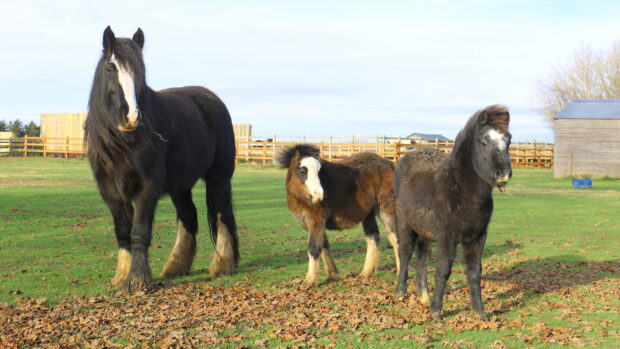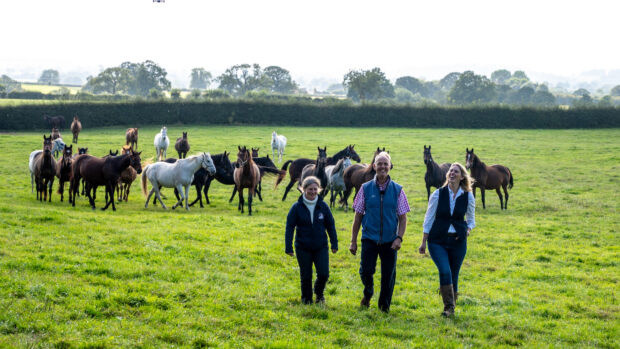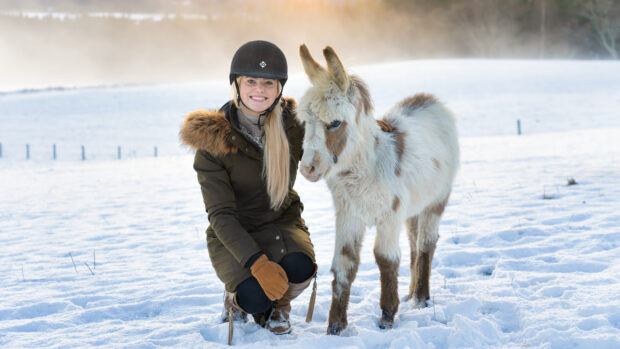Test-Tube technology has made a successful return with the birth of Twemlows Little ICSI — the first foal in many years conceived in the UK by Intra Cytoplasmic Sperm Injection (ICSI).
ICSI was born at one of Britain’s foremost pioneering studs, Twemlows in Shropshire, the culmination of a three-year government-subsidised Knowledge Transfer Partnership (KTP) aimed at establishing breeding methods previously only available abroad.
The process borrows from human medicine, and Twemlows collaborated with doctors as well as vets from Surrey and Liverpool universities.
| Related articles |
Eggs were harvested from a donor mare euthanised 11 months ago. Fertilisation took place in a petri dish by injecting a single sperm into each egg. The embryo was then non-surgically transferred to a surrogate mare, Victoria, who carried the pregnancy to full term.
Twemlows’ Edward Matson said potential benefits included the facility to get foals from valuable mares with fertility problems or which had had to be euthanised unexpectedly, and from stallions with poor quality semen.
“It also has the potential to collect semen if you can get to the testes within a few hours of a stallion’s death, and to make the last few remaining straws go further,” he said.
The relative freshness of the embryo influences the success rate.
The importance of ICSI for rare breeds has been picked up by the BBC, which featured a young vet involved in the research, Niamh Lewis, in a recent edition of Countryfile.
Tom Beeston, chief executive of the Rare Breeds Survival Trust, welcomed the developments in ICSI, stating: “Breeding numbers of all our native equine breeds continue to decline. If not halted soon our gene bank may be needed to reconstitute a breed, it really is that serious.”
Mr Matson said that the esteemed vet Professor “Twink” Allen trialled ICSI many years ago, but thereafter it was only available in Italy and the USA.
“Four years ago we decided to try for a KTP to look into it, as there are still mares you can’t get in foal.
“We had to provide a five-yearcash flow and show how the investment would make a difference to the bottom line. We have spent tens of thousands on equipment. Now the KTP has finished, we are still doing research and have got two other companies interested.
“Commercially, it will take a long time to get a return, but you have to keep pushing the boundaries.”
Little ICSI was sired by Twemlows’ jumping stallion Libra K, though his biological dam is unknown. For research purposes, large numbers of uteruses are required and have to be harvested from abbatoirs.
“Whatever his breeding, we hope ICSI will have a long life as a flagship for Twemlows,” said Mr Matson.
Twemlows has also used the KTP to advance embryo transfer techniques. In June, Twemlows Simba was born as a result of oocyte transfer, during which fertilisation took place in a surrogate mare herself, rather than a petri dish, with semen introduced to her uterus before the donor egg was in place.
Ref: H&H 8 October, 2015




